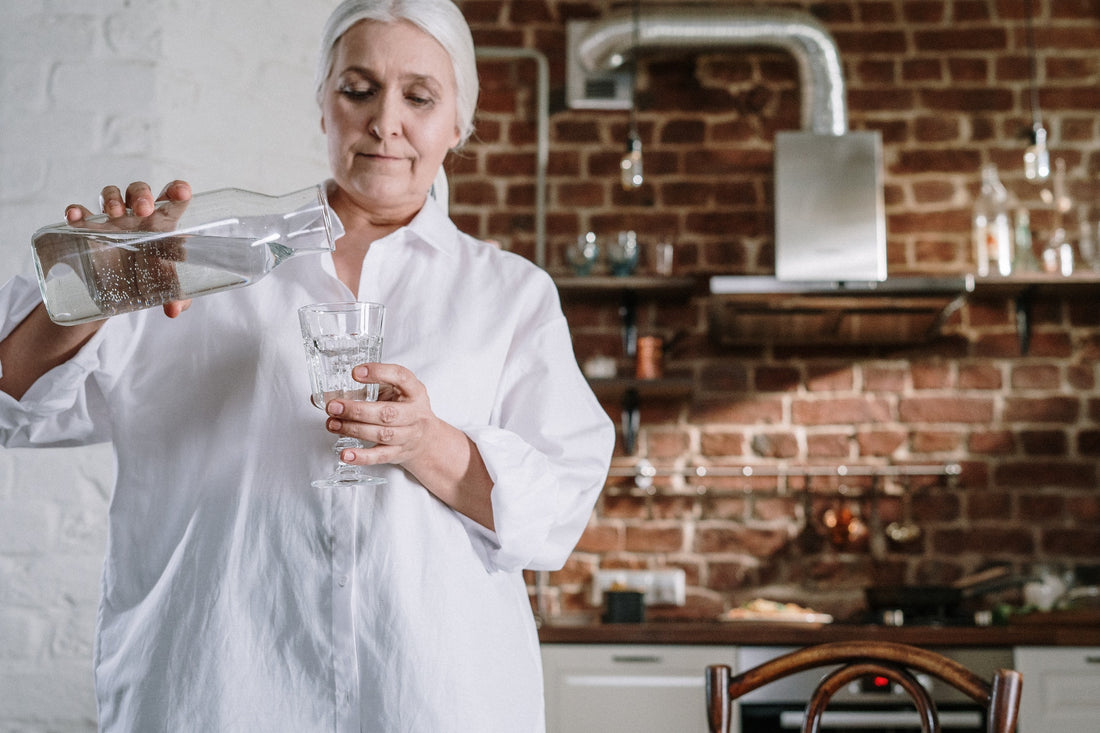
Stay Hydrated During Summer Heatwaves: How Hydration Impacts Your Immune System and Wellness
Share
Heatwaves recently swept Canada and the United States’ Pacific Northwest, breaking historic heat records, triggering massive wildfires and tragic spikes in heat-related deaths, and causing widespread shortages of ice and water in cities from Vancouver, BC, to Seattle, WA, and on down the coast. Researchers warn that these types of scorching temperatures are fast becoming the norm. As we get into the dog days of summer, it’s important that we once again highlight the importance of hydration during the summer heat. Historic heatwave or not, hydration is foundational for your health and wellness — including the surprising effects that hydration has on your immune system.
Hydration and Immunity: They’re More Intertwined Than You May Realize
 Staying hydrated isn’t just about quenching your thirst or preventing heat exhaustion when you’re outdoors or when you’re exercising. Hydration and dehydration also have far-reaching consequences in nearly every other arena of your life.
Staying hydrated isn’t just about quenching your thirst or preventing heat exhaustion when you’re outdoors or when you’re exercising. Hydration and dehydration also have far-reaching consequences in nearly every other arena of your life.
Side effects of not drinking enough water include:
- A significant drop in strength, energy and endurance, starting when you’ve lost as little as 1% of your body weight in water
- Mental health and cognition side effects, including poor focus and concentration and impaired mood
- A higher risk of several chronic diseases, including cardiovascular disease and cancer
- Increased weight gain, and poorer body composition (i.e., your ratio of muscle and fat)
Hydration also has a direct impact on your immune strength and general immune function, in part due to how each individual cell in your body requires water to function properly:
- It supports your blood volume, and it’s your blood that carries white blood cells, chemical signals, and other components of your immune system that’s critical for a proper immune response to viruses, bacteria, and other threats
- It’s foundational for your lymphatic system, which is comprised of approximately 96% water. Your lymph nodes are essential for removing immune system waste, including pathogens and bacteria, and dehydration prevents your lymphatic system from doing its job.
- It transports nutrients in and out of your immune system cells.
- It helps to literally flush bacteria and viruses out of your body.
- It helps with the production of secondary immune system components, such as thymic proteins (which you can also find in powerful immunity-boosting supplements like BioPro-Plus 500), that your immune system needs for optimal functioning.
It’s no wonder that studies have found that dehydration has an overall suppressive, weakening effect on your immunity. But how do you counter this, exactly?
Hydration 101: A Smarter Way to Stay Hydrated
How Can You Tell If You’re Drinking Enough Water?
 First, recognize that all of the general hydration recommendations out there are just that — general recommendations. Yes, drinking eight glasses of water a day is a good start, but that can still leave you prone to dehydration depending on your activity levels, age, and similar factors.
First, recognize that all of the general hydration recommendations out there are just that — general recommendations. Yes, drinking eight glasses of water a day is a good start, but that can still leave you prone to dehydration depending on your activity levels, age, and similar factors.
One of the best ways to tell if you’re hydrated enough is by checking the color of your urine after you’ve gone to the bathroom. In general, pale-yellow to clear urine is a sign that you’re drinking and consuming enough water.
You’ll also want to proactively up your water intake if you are:
- Exercising
- Going through periods of hot weather
- Feeling thirsty or experiencing headaches
A common myth, however, is that more fluids are always better but it is possible to also drink too much. Consuming too much fluid can overdilute your electrolytes which could cause neurological symptoms and could even become quite dangerous for your brain. There are few reasons why someone would and should need to drink more than 9 x 8oz glasses of fluid per day.
Are Certain Drinks Dehydrating and Bad For You?
You’ve likely heard about diuretic beverages, such as coffee and other caffeinated drinks. While it’s true that they can make you excrete extra fluids via urination, the effects are very, very mild when consumed in moderation. Drinking a non-caffeinated drink is best, but even caffeinated beverages can help you stay hydrated, and fears about their diuretic effects are primarily based on urban myths.
How Can You Increase Your Hydration Intake Beyond Drinking Water?
 Think beyond your glass. Your body also gets nourishing fluids through the foods you eat.
Think beyond your glass. Your body also gets nourishing fluids through the foods you eat.
Some of the best foods that can help you stay hydrated include:
- Leafy greens, such as spinach, lettuce and kale
- Berries, such as strawberries or raspberries
- Watermelon
- Pineapple
- Cucumber
- Dairy, such as yogurt or kefir
Interested in Learning More About Staying Healthy This Summer?
Sources:
- https://www.theweathernetwork.com/dj/news/article/heat-dome-crumples-long-standing-records-rewrites-history-again-british-columbia
- https://journals.lww.com/nsca-jscr/Abstract/2018/12000/Impact_of_Mild_Hypohydration_on_Muscle_Endurance,.14.aspx
- https://www.ncbi.nlm.nih.gov/pubmed/22190027
- https://www.ncbi.nlm.nih.gov/pmc/articles/PMC4901052/
- https://www.ncbi.nlm.nih.gov/pmc/articles/PMC3809630/
- https://www.ncbi.nlm.nih.gov/pmc/articles/PMC2908954/
- https://www.cpandr.co.uk/2018/03/20/exercise-lifestyle-and-the-lymphatic-system/
- https://pubmed.ncbi.nlm.nih.gov/22362640/
- https://health.ucsd.edu/news/features/Pages/2014-04-21-colors-that-suggest-urine-trouble.aspx
- https://pubmed.ncbi.nlm.nih.gov/27225921/
